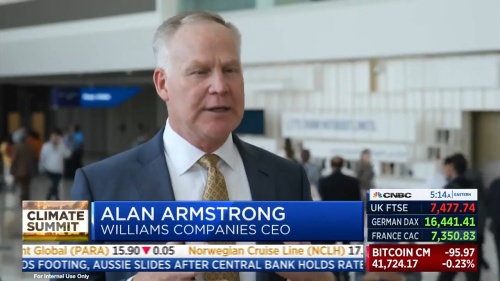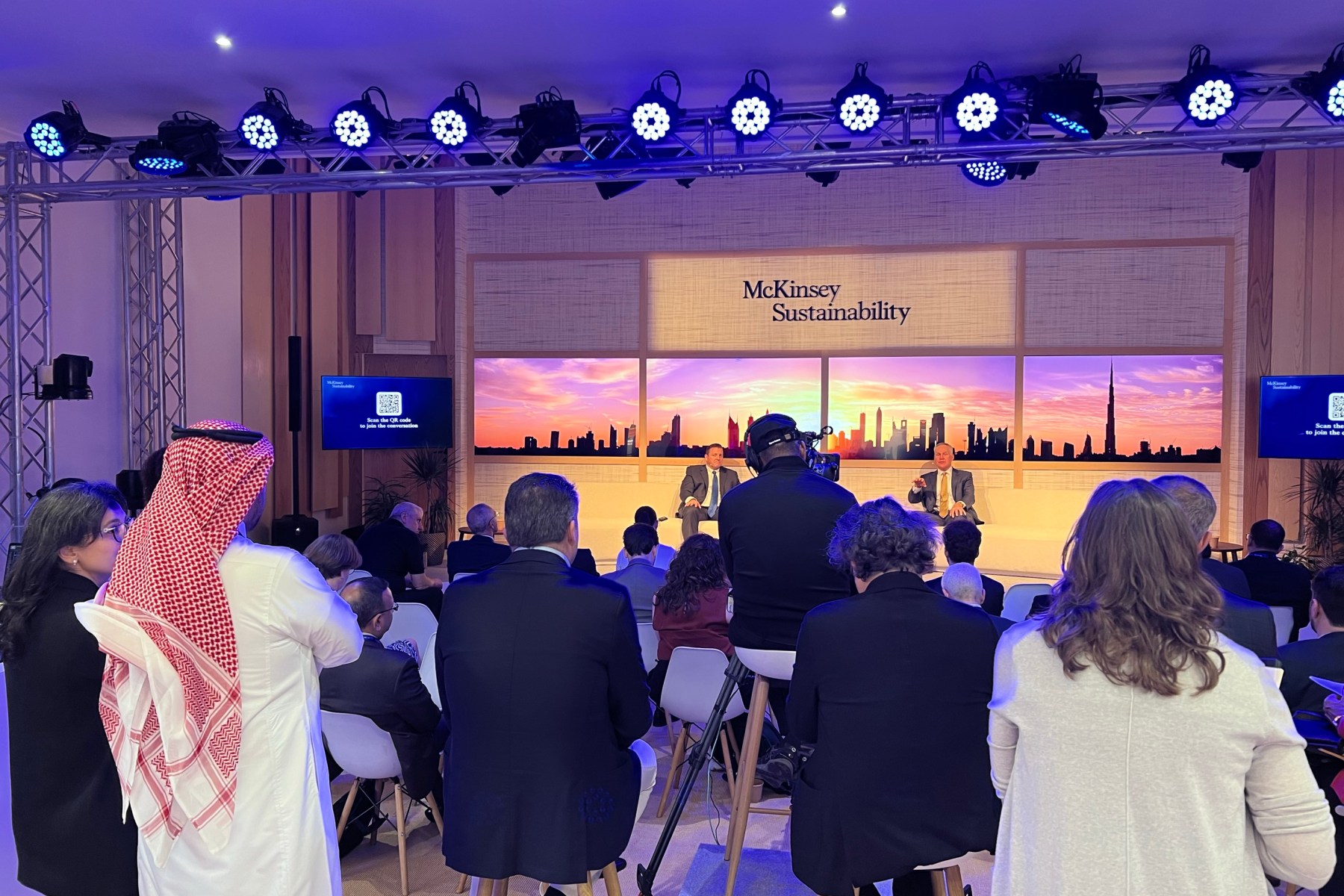Natural gas will continue to play a critical role in reducing emissions by replacing coal for power generation while reliably backing up renewable energy sources, said Williams President and CEO Alan Armstrong at COP28, the United Nation’s climate meeting in Dubai.
Last year, countries around the globe burned more coal to generate electricity than any other time in history. By contrast, emissions in the U.S. have declined significantly since 2005 because of the switch from coal to lower-carbon natural gas.

“We’re continuing to grow coal use around the world and the fact is, natural gas is more economic and one of the few things that we can deploy in scale without government subsidy to reduce emissions dramatically around the world,” Armstrong said in an interview with CNBC.
He said the world needs an inclusive and balanced portfolio of energy solutions to achieve a common goal of reducing emissions.
“The challenge that we have is huge and if we’re going to take this on, it’s going to take everyone pulling on the same rope,” Armstrong said on a panel hosted by McKinsey & Co.
Global energy demand is forecasted to grow 15% by 2040, and nearly 40% of this growth in demand will be met with natural gas and exports of LNG. The world needs to produce 15% more energy in 2040 compared to 2020 to support a growing population.
Williams is one of the largest builders and operators of natural gas infrastructure in the United States, operating more than 33,000 miles of energy infrastructure and transporting approximately one third of the natural gas in the United States.
On a Global Decarbonization Accelerator panel hosted by the Partnership to Address Global Emissions, Armstrong said natural gas is an immediate and scalable climate solution that works towards reducing global emissions while providing affordable and reliable energy.
“If you think about all the benefits that natural gas brings to the table, one of the most important is the low cost compared to other fuel choices. If you start with that and then you talk about it being clean and abundant, it has so many things going for it.”
